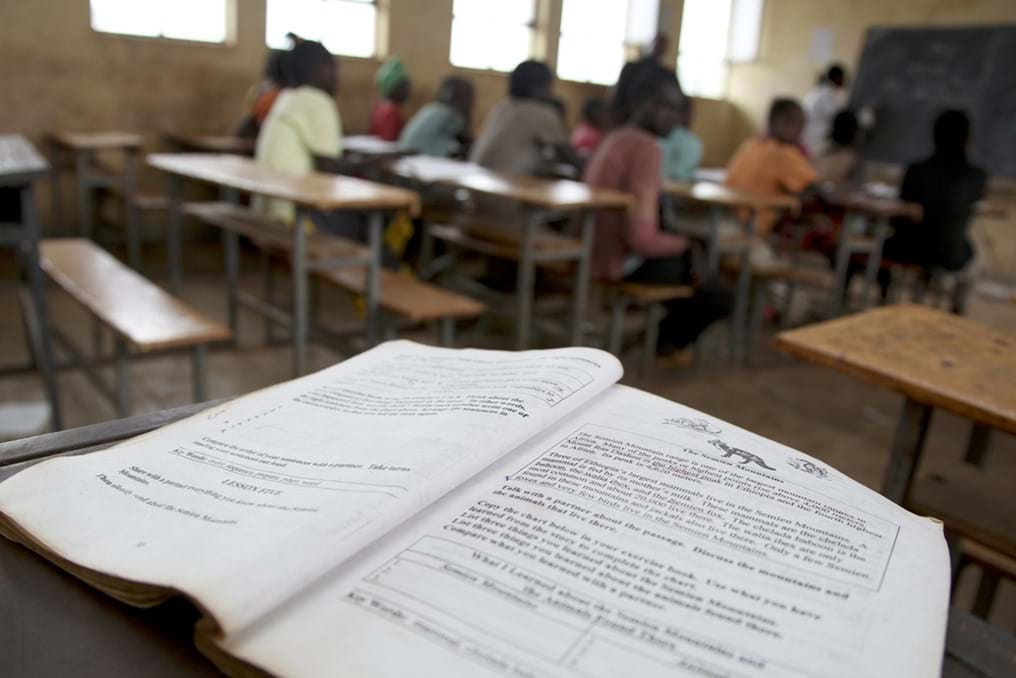Chemical engineer develops sanitary towels to help girls stay in school (Day 335)

27th April 2015
Here in the UK and other developed countries, it's all too easy to take some things for granted, such as access to education, to clean water and to sanitary facilities.
When we look at the developing world, it can be difficult to comprehend the challenges people face on a daily basis.

In Ethiopia, as many as 18 million young girls and women have no access to sanitary towels. This forces many young girls to drop out of school. But the good news is that one chemical engineer is trying to change that.
For most girls, their first menstrual cycle is awkward and embarrassing, but seen as a natural transition towards womanhood. However, in Ethiopia it can be an incredibly taboo subject. As a consequence, misinformation, negative beliefs and myths hold sway.
In the rural Tigray region of Ethiopia, where chemical engineer Freweini Mebrahtu grew up, young girls found out about their menstrual cycle through overheard rumour and myth; often leaving them shocked, confused and afraid.
"Girls overhear from grown-ups that [they] have their periods because they’re being bad, and therefore are ready to be married” Freweini explained.
Freweini and her friends would use old pieces of clothing or dry grass as pads, and take large scarves to cover themselves if their clothes became stained. They did not dare ask questions for fear of being chastised, as some believed menstruating girls to be 'impure'.
Due to her father’s hard work and support, Freweini received an education, and left Ethiopia to study chemical engineering at the Prairie View A & M University in Texas, US, where she stayed for ten years.
Upon returning to Ethiopia in 1992, she found that women and young girls were still in the same situation. The associated shame of bleeding in school would result in “another unspoken dropout.”
It was either that or the girls would "dig a hole inside the house, and sit on it for four of five days, until the bleeding stops.” This would inevitably cause them to fall behind in their studies.
Horrified that nothing had changed, Freweini used her chemical engineering knowledge and set to work.

She developed a formula for a reusable sanitary pad that attached to underwear with Velcro. It was a simple but effective cotton pad with a waterproof lining. The pads were environmentally friendly, easy to wash and far more cost-effective than single-use disposable pads.
Fast forward to 2009, and Freweini received a loan to build the Mariam Seba Sanitary Products Factory, which was named after her daughter.
She currently employs 42 local women who produce over 600,000 pads per year for girls across Ethiopia. A set of four pads sells for around US $1.40 and is designed to last around two years. .
It is an incredible feat that, without her chemical engineering background, may not have been achieved.
According to the World Health Organisation (WHO), ‘health’ is defined as a state of complete physical, mental and social ‘wellbeing’ and not merely the absence of disease of infirmity.
So being able to live free of fear and embarrassment at school will increase the health and wellbeing of young girls in places like Ethiopia. Not being forced to take five days off school every month puts them in a far better position to do well in class and pass their examinations. With education comes greater employability, mobility and a sense of worth, which in the long run will help lift them out of poverty.
Freweini also empowers the women in her factory by promoting from within; as well as passionately encouraging her workers to continue their education.
She even plans to start playing educational tapes over the factory speakers, along with news programmes and popular music that the workers enjoy. “I want them to crave coming into work”, the chemical engineer and entrepreneur beamed.
IChemE is committed to equality and diversity in all parts of the chemical engineering community and this is a truly inspiring story. I am proud of the fact that Freweini is using her chemical engineering know how and skills to improve the lives of countless young girls and women in her country.
There are still many thousands of women in Ethiopia who don't have access to basic sanitary protection. So please share this blog to highlight the need for more action, and the great work Freweini is doing. For more information, visit: www.dignityperiod.org